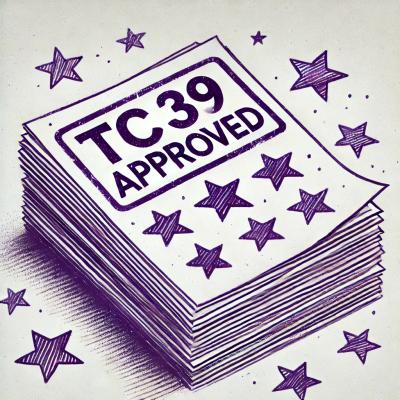
Security News
Internet Archive Hacked, 31 Million Record Compromised
The Internet Archive's "Wayback Machine" has been hacked and defaced, with 31 millions records compromised.
near-sdk-js
Advanced tools
The fastest and recommended way to develop with near-sdk-js is to create a project with our github template: https://github.com/near/near-sdk-js-template-project.
There are a couple of contract examples in the project:
The general steps to run these contracts are same. You can also follow their corresponding READMEs to build, test and run the contracts.
jsvm.wasm from the res folder to one of account you controlled. For example, jsvm.<your-account>:export NEAR_ENV=local
near deploy res/jsvm.wasm <jsvm-account>
cd examples/<example>yarn && yarn build to get .base64 file (JS smart-contract).JSVM account from the previous step.near js deploy --accountId <your-account> --base64File build/<contract-name>.base64 --deposit 0.1 --jsvm <jsvm-account>
near-api-js. Encode the parameters and call. If the call cause the state increasement, you also need to attach NEAR to cover the storage deposit for the delta.near js call <account-that-deployed-js-contract-to-jsvm> <method-name> --accountId <account-performing-call> --args <args> --deposit 0.1 --jsvm <jsvm-account>
near js remove --accountId <your-account> --jsvm <jsvm-account>
export NEAR_ENV=testnetcd examples/<example>yarn && yarn build to get .base64 file (JS smart-contract).jsvm.testnet. This is also the default value, so you omit --jsvm.If you want to indicate an error happened and fail the transaction, just throw an error object in JavaScript. Our JSVM runtime will detect and automatically invoke panic_utf8 with "{error.message}\n:{error.stack}". As a result, transaction will fail with "Smart contract panicked: {error.message}\n{error.stack}" error message. You can also use an error utilities library to organize your errors, such as verror.
When your JS code or library throws an error, uncaught, the transaction will also fail with GuestPanic error, with the error message and stacktrace.
When call host function with inappropriate type, means incorrect number of arguments or arg is not expected type: - if arguments less than params, remaining argument are set as 'undefined' - if arguments more than params, remaining argument are ignored - if argument is different than the required type, it'll be coerced to required type - if argument is different than the required type but cannot be coerced, will throw runtime type error, also with message and stacktrace
We recommend to use near-workspaces to write tests for your smart contracts. See any of the examples for how tests are setup and written.
All NEAR blockchain provided functionality (host functions) are defined in src/api.js and exported as near. You can use them by:
import {near} from 'near-sdk-js'
// near.<api doucmented below>. e.g.:
let signer = near.signerAccountId()
To use nightly host functions, such as altBn128G1Sum, the enclave contract need to be built with make jsvm-nightly and deployed to a nearcore node that has nightly enabled.
Uint64: Number | BigInt. In return, Uint64: BigInt. Because JavaScript Number cannot hold all Uint64 without losing precision. But as arguments, interger number is also allowed for convinience. Same for Uint128.Bytes in both arguments and return represent a byte buffer, internally it's a JavaScript String Object. Any binary data 0x00-0xff is stored as the char '\x00-\xff'. This is because QuickJS doesn't have ArrayBuffer in C API. If the bytes happens to have only 1-byte chars, it happens to be same as the the same content string.function signerAccountId(): String;
function signerAccountPk(): String;
function predecessorAccountId(): String;
function blockIndex(): Uint64;
function blockHeight(): Uint64;
function blockTimestamp(): Uint64;
function epochHeight(): Uint64;
function attachedDeposit(): Uint128;
function prepaidGas(): Uint64;
function usedGas(): Uint64;
function randomSeed(): Bytes;
function sha256(value: Bytes): Bytes;
function keccak256(value: Bytes): Bytes;
function keccak512(value: Bytes): Bytes;
function ripemd160(value: Bytes): Bytes;
function ecrecover(hash: Bytes, sign: Bytes, v: Uint64, malleability_flag: Uint64): Bytes | null;
function panic(msg?: String);
function panicUtf8(msg: Bytes);
function log(msg: String);
function logUtf8(msg: Bytes);
function logUtf16(msg: Bytes);
function storageRead(key: Bytes): Bytes | null;
function storageHasKey(key: Bytes): bool;
function validatorStake(account_id: String): Uint128;
function validatorTotalStake(): Uint128;
function altBn128G1Multiexp(value: Bytes): Bytes;
function altBn128G1Sum(value: Bytes): Bytes;
function altBn128PairingCheck(value: Bytes): bool;
Due to the design of JavaScript VM Contract, some additonal APIs are provided to obtain context, access storage and cross contract call. Since they're not documented at NEAR nomicon. They're explained here.
function jsvmAccountId(): String;
function jsvmJsContractName(): String;
function jsvmMethodName(): String;
function jsvmArgs(): Bytes;
The jsvmAccountId returns the JavaScript VM's contract account ID.
The jsvmJsContractName, when called, returns the JavaScript contract name that are called at the moment.
The jsvmJsContractName returns the method name being called.
The jsvmArgs return the arguments passed to the method.
function jsvmStorageWrite(key: Bytes, value: Bytes): bool;
function jsvmStorageRead(key: Bytes): Bytes | null;
function jsvmStorageRemove(key: Bytes): bool;
function jsvmStorageHasKey(key: Bytes): bool;
function storageGetEvicted(): Bytes;
These are equivalent to storage* but access limit to the substate of current JS contract. The jsvmStorageWrite and jsvmStorageRemove require and refund deposit to cover the storage delta. jsvmStorage* access the substate of current JS contract by prefix the key of current JS contract name (deployer's account id). You can use storageRead and storageHasKey to get code and state of other JS contracts. More specifically: code of contractA is stored under the key contractA/code. state of contractA is stored under contractA/state/ concat with developer specifid key. And:
jsvmStorageRead(k)
// equvalent to
storageRead(jsvmJsContractName() + '/state/' + k)
When jsvmStorageWrite write to a key that already exists, the old value would be saved and can be obtained by storageGetEvicted(). In this case, jsvmStorageWrite returns true. If key doesn't exist before, returns false.
When jsvmStroageRemove remove a key that exists, the old value would be saved and can be obtained by storageGetEvicted(). In this case, jsvmStroageRemove returns true. If key doesn't exist before, nothing is removed and returns false.
function jsvmValueReturn(value: Bytes);
function jsvmCall(contract_name: String, method: String, args: Bytes): any;
function jsvmCallRaw(contract_name: String, method: String, args: Bytes): Bytes;
The jsvmValueReturn is the version of valueReturn that should be used in all JavaScript contracts. It play well with jsvmCall.
The jsvmCall invoke a synchronous cross contract call, to the given JavaScript contract_name, method with args. And returned the return value parsed as JSON into a JS object.
The jsvmCallRaw is similar to jsvmCall, but return the raw, unparsed Bytes.
A few useful on-chain persistent collections are provided. All keys, values and elements are of type Bytes.
Vector is an iterable implementation of vector that stores its content on the trie. Usage:
import {Vector} from 'near-sdk-js'
// in contract class constructor:
constructor() {
super()
this.v = new Vector('my_prefix_')
}
// Override the deserializer to load vector from chain
deserialize() {
super.deserialize()
this.v = Object.assign(new Vector, this.v)
}
someMethod() {
// insert
this.v.push('abc')
this.v.push('def')
this.v.push('ghi')
// batch insert, extend:
this.v.extend(['xyz', '123'])
// get
let first = this.v.get(0)
// remove, move the last element to the given index
this.v.swapRemove(0)
// replace
this.v.replace(1, 'jkl')
// remove the last
this.v.pop()
// len, isEmpty
let len = this.v.len()
let isEmpty = this.v.isEnpty()
// iterate
for (let element of this.v) {
near.log(element)
}
// toArray, convert to JavaScript Array
let a = this.v.toArray()
// clear
ths.v.clear()
}
LookupMap is an non-iterable implementation of a map that stores its content directly on the trie. It's like a big hash map, but on trie. Usage:
import {LookupMap} from 'near-sdk-js'
// in contract class constructor:
constructor() {
super()
this.m = new LookupMap('prefix_a')
}
// Override the deserializer to load vector from chain
deserialize() {
super.deserialize()
this.m = Object.assign(new LookupMap, this.m)
}
someMethod() {
// insert
this.m.set('abc', 'aaa')
this.m.set('def', 'bbb')
this.m.set('ghi', 'ccc')
// batch insert, extend:
this.m.extend([['xyz', '123'], ['key2', 'value2']])
// check exist
let exist = this.m.containsKey('abc')
// get
let value = this.m.get('abc')
// remove
this.m.remove('def')
// replace
this.m.set('ghi', 'ddd')
}
LookupSet is an non-iterable implementation of a set that stores its content directly on the trie. It's like LookupMap, but it only stores whether the value presents. Usage:
import {LookupSet} from 'near-sdk-js'
// in contract class constructor:
constructor() {
super()
this.s = new LookupSet('prefix_b')
}
// Override the deserializer to load vector from chain
deserialize() {
super.deserialize()
this.s = Object.assign(new LookupSet, this.s)
}
someMethod() {
// insert
this.s.set('abc')
this.s.set('def')
this.s.set('ghi')
// batch insert, extend:
this.s.extend(['xyz', '123'])
// check exist
let exist = this.s.contains('abc')
// remove
this.s.remove('def')
}
UnorderedMap is an iterable implementation of a map that stores its content directly on the trie. Usage:
import {UnorderedMap} from 'near-sdk-js'
// in contract class constructor:
constructor() {
super()
this.m = new UnorderedMap('prefix_c')
}
// Override the deserializer to load vector from chain
deserialize() {
super.deserialize()
this.m.keys = Object.assign(new Vector, this.m.keys)
this.m.values = Object.assign(new Vector, this.m.values)
this.m = Object.assign(new UnorderedMap, this.m)
}
someMethod() {
// insert
this.m.set('abc', 'aaa')
this.m.set('def', 'bbb')
this.m.set('ghi', 'ccc')
// batch insert, extend:
this.m.extend([['xyz', '123'], ['key2', 'value2']])
// get
let value = this.m.get('abc')
// remove
this.m.remove('def')
// replace
this.m.set('ghi', 'ddd')
// len, isEmpty
let len = this.m.len()
let isEmpty = this.m.isEnpty()
// iterate
for (let [k, v] of this.m) {
near.log(k+v)
}
// toArray, convert to JavaScript Array
let a = this.m.toArray()
// clear
this.m.clear()
}
UnorderedSet is an iterable implementation of a set that stores its content directly on the trie. It's like UnorderedMap but it only stores whether the value presents. Usage:
import {UnorderedSet} from 'near-sdk-js'
// in contract class constructor:
constructor() {
super()
this.s = new UnorderedSet('prefix_d')
}
// Override the deserializer to load vector from chain
deserialize() {
super.deserialize()
this.s.elements = Object.assign(new Vector, this.s.elements)
this.s = Object.assign(new UnorderedSet, this.s)
}
someMethod() {
// insert
this.s.set('abc')
this.s.set('def')
this.s.set('ghi')
// batch insert, extend:
this.s.extend(['xyz', '123'])
// check exist
let exist = this.s.contains('abc')
// remove
this.s.remove('def')
// len, isEmpty
let len = this.s.len()
let isEmpty = this.s.isEnpty()
// iterate
for (let e of this.s) {
near.log(e)
}
// toArray, convert to JavaScript Array
let a = this.s.toArray()
// clear
this.s.clear()
}
Due to the architecture of the JSVM, some NEAR host functions, part of Standalone SDK or Rust SDK, are not revelant or being replaced by above JSVM specific APIs. Those unavailable APIs are explained here.
The current_account_id would always puts the account id of the JavaScript VM contract account in given register. The naming current_account_id is therefore confusing and not as helpful as a Rust contract. In some case, developer may want to get JavaScript VM contract account name, for example, determines whether it's running on testnet or mainnet, and behaves differently. So we expose this functionality under jsvm_account_id().
The input puts the argument passed to call the contract in given register. In JavaScript VM, this is encoded as "js_contract_name\0method_name\0args.... This format isn't very convinient to developer, therefore, separate API jsvm_js_contract_name, jsvm_method_name and jsvm_args are provided.
The storage_usage return the storage bytes used by JavaScript VM contract. User doesn't care about the storage usage of the JSVM. Instead, users care about storage usage of a given JavaScript contract. This can be obtained by storage_read and count the sum of register_len.
The account_balance and account_locked_balance returns balance and locked_balance of JavaScript VM. Those are also not cared by users.
The value_return is a NEAR primitive that puts the value to return in a receipt. However we would want to access it as a JavaScript return value in a cross contract call. So we have a new API jsvmValueReturn, which does return the value in receipt and also as a JavaScript value returned by jsvm_call. The jsvmValueReturn should be used whenever you need value_return.
abort is intended to mark error location (line number). A full stacktrace with line numbers is provided by QuickJS, available when you throw a JS Error. So this API isn't needed.
Promise APIs act on the JSVM contract and could create subaccount, use the balance from JSVM account.JSVM would be a common VM used by the community instead of a Rust contract owned by the deployer. Therefore, promise APIs are not allowed.
The storage_write and storage_remove have access to all JavaScript contract codes and states deployed on JSVM. User can only write to their account owned code and state, as a substate of the JSVM. Therefor these two APIs are disallowed. Use jsvm_storage_write and jsvm_storage_remove instead. Read to other people owned code and state is allowed, as they're public as part of the blockchain anyway.
You can also layout your project by install the npm package manually:
yarn add near-sdk-js
# or
npm install near-sdk-js
It is tested on Ubuntu 20.04, Intel Mac and M1 Mac. Other linux should also work but they're not tested.
wget, make, cmake and nodejs. On Linux, also make sure you have gcc.make to get platform specific qjsc and jsvm contract in res folder.See https://github.com/near/near-sdk-js/tree/master/tests
near js subcommand in near-cli is a recent feature. Under the hood, it is encoding a special function call to jsvm contract.
near call <jsvm-account> deploy_js_contract --accountId <your-account> --args $(cat <contract-name>.base64) --base64 --deposit 0.1
near call <jsvm-account> call_js_contract --accountId <your-account> --args <encoded-args> --base64
# where `<encoded-args>` can be obtained by:
node scripts/encode_call.js <your-account> <method-name> <args>
near call <jsvm-account> remove_js_contract --accountId <your-account>
FAQs
High Level JavaScript SDK for building smart contracts on NEAR
The npm package near-sdk-js receives a total of 152 weekly downloads. As such, near-sdk-js popularity was classified as not popular.
We found that near-sdk-js demonstrated a healthy version release cadence and project activity because the last version was released less than a year ago. It has 3 open source maintainers collaborating on the project.
Did you know?

Socket for GitHub automatically highlights issues in each pull request and monitors the health of all your open source dependencies. Discover the contents of your packages and block harmful activity before you install or update your dependencies.

Security News
The Internet Archive's "Wayback Machine" has been hacked and defaced, with 31 millions records compromised.

Security News
TC39 is meeting in Tokyo this week and they have approved nearly a dozen proposals to advance to the next stages.

Security News
Our threat research team breaks down two malicious npm packages designed to exploit developer trust, steal your data, and destroy data on your machine.